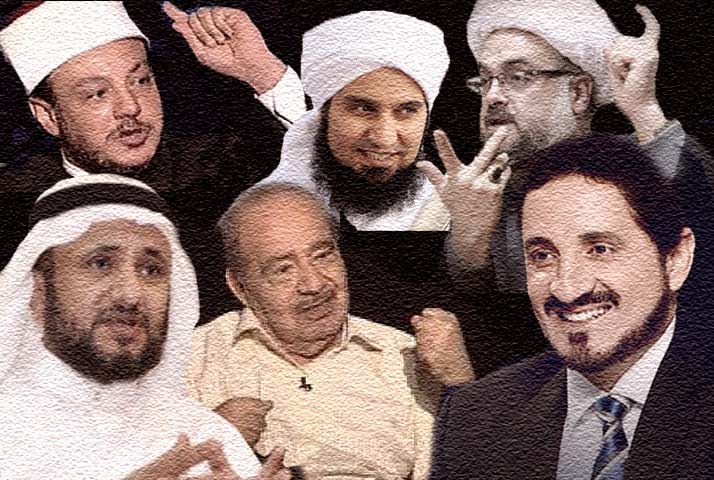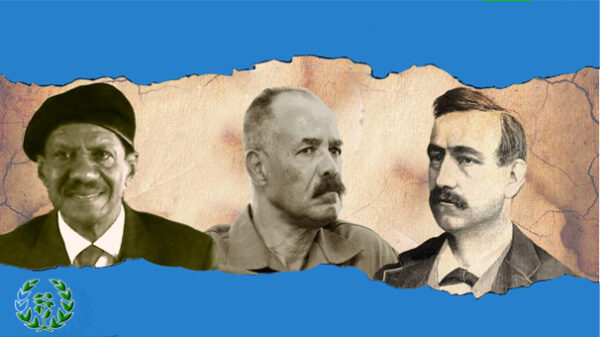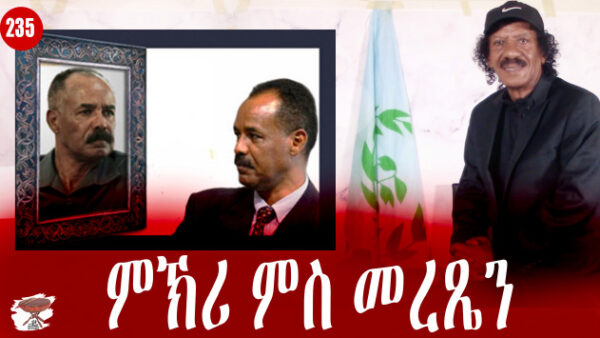The New Wave of Muslim Preachers

The last decade or so has been difficult for Muslims in many countries, but Muslims are still suffering the most in their own countries due to bad governance, low literacy rates, and poverty. If many non-Muslims are anxiety stricken by the savage actions of some bloodthirsty fanatic Muslims, it is helpful to remember the victims are overwhelmingly Muslims. However, some politicians have found the blanket accusation of all Muslims beneficial for their hate mongering. It has now become too common for fascists to hide behind the terrorist curtain and show their naked prejudice. Worse, ignorant elements who hail from religiously diverse countries, have found it serving to their bigotry to insult all Muslims. And it will be good if Western politicians remembered their governments and intelligence agencies were responsible for creating the modern-day Hydra, with a hundred heads, that is terrorizing Muslim countries more than others.
Understandably, the war to defeat the terrorists of the Muslim world is primarily the responsibility of Muslims—just like the Italians defeated Brigate Rosse, the Germans defeated Baader-Meinhof, and the Japanese defeated Nihon Sekigun. But parallel to the physical war, Muslims have to attend to the underlying social structural causes and reasons, that made the existence of terrorists possible; and the fight is mainly against ignorance and bad governance. Sadly, Muslims must do that while at the same time being bombarded (literally and figuratively) by continuous vilification—even the lowly riffraff of the world think they now have the license to insult Muslims wholesale. Yet, the Muslim revival movement is already gaining ground among different sectors of the societies, mainly the youth.
Since a few years ago, many Muslims are being influenced by fervent preachers who are challenging the long-held misconceptions and cultural problems that until recently, were considered a taboo. While the rest of the world is naively wondering, “what is wrong with Muslims”, a serious intellectual debate is raging in the Muslim World. Thanks to social media, particularly YouTube, confident and well-educated preachers are pulling the rug from under the conservative establishment and its preachers who controlled the pulpit and monopolized the inter-Muslim discourse agenda for too long.
Narrations in the middle
Many Muslims and non-Muslims alike, do not understand that most of the contemporary problems associated with Islam are mainly based on the claimed narrations of the life and practices of the Prophet Mohammed, known as Sunna (traditions/Hadith). Unfortunately, some of the narrations were compiled two centuries after the death of the prophet, and they have been in the center of the misconceptions that burdened Muslims for centuries.
Though there are many books of narrations, the most debated is Bukhari’s eight volume compilation that contain over 7000 Ahaadith (pl. narrations) covering a myriad of topics. Generally, common Muslims accept the narrations because they are authenticated by a council of scholars, “Ijmaa”, who decide on confessions and questions that concern Muslims. Ijmaa, or consensus, is somewhat equivalent to the Christian Ecumenical Council.
Over the years, the narrations have become so revered that many consider them akin to the Qura’an, and many consider Bukhari, a person who could have prejudices, wrong judgments, and misquotes, as infallible. Unfortunately, some narrations do not sound logical to the critical minded who reject them. In addition, the compilations are based on word of mouth told by someone who quotes a chain of sources that lived many generations earlier. Thus, its accuracy is questionable and most of it cannot pass a rigorous scholarly scrutiny based on the techniques of this age; and some narrations clearly conflicts with the Qura’an and common sense. Sadly, holding such a view could arouse the wrath of the fundamentalist establishments and expose one to the risk of being considered an apostate.
To explain the dilemma, let’s see a sample of a controversial narration attributed to the prophet: “my nation will be divided into 73 sects, all destined to hell-fire except one.” This narration, and many like it, have encouraged the literalists and fanatics into believing only their group is destined to be saved, and to condemn other Muslims and non-Muslims alike—that “narration” contradicts the central message of Qura’an.
For so long, many critical issues remained a taboo and whatever was discussed, hardly reached the common Muslim, unlike today when social media has become accessible to many Muslims who are feeding on information they never knew existed. And they are finding answers to their questions that remained vague for centuries when debates were limited to narrow circles, and books were quarantined, stored far from the reach of the public (Aama, as the commoners are called with belittling gesture), and the public sphere is controlled by well-funded, well protected, well promoted preachers and scholars who suffocate the Muslim religious discourse; and that has became an impediment to modernization.
Consensus on what?
Christianity passed through many such phases, particularly Catholicism, which went through more than twenty ecumenical councils and congresses to discuss on a host of controversial issues, such as the use contraceptives, and Liberation Theology that started in Latin America, and the like. The Protestant churches also hold such congresses and ecumenical council, but if they reach a dead-end, they leave it to the rational judgement of the adherents. The Abyssinian Tewahdo Church still holds to the decisions of the Fourth Ecumenical Council of the Chalcedonian churches that was held in Modern Turkey in AD 451. Similar to Christian churches, Islam is divided into factions–mainly Sunni and Shiaa–and each sect holds its separate council, but the day to day life of a Muslim is much influenced by religious edicts (Fetwa) issued by some scholars.
In the last few decades, religious edicts issued by fanatic personalities, or by those who think they can legislate Islamic laws on behalf of God, has been wreaking havoc everywhere. For instance, in Egypt alone over 200 people were killed by extremist Muslims in less than two years between 1992-1993. Orthodox Muslim fundamentalists believe they are the only genuine Muslims and act as if they have a divine authority to kill anyone who doesn’t subscribe to their worldview.
The Afghanistan experience
It is worth remembering that the modern phase of Islamic fundamentalism was sparked by the return of thousands of young Muslims who were trained and armed by the West, mainly the USA, to fight the Soviet Union in Afghanistan. When the Soviet Union left Afghanistan, the haphazard plans failed to transition the country to normalcy. Elsewhere, the same haphazard plan failed or provide rehabilitation and accommodation for the thousands of Muslim youth who returned to their countries with heavy doses of fundamentalist ideology, only to be marginalized and hopelessly unemployed, and they couldn’t re-integrate into their original societies.
The same has happened to the adventure of the West in Iraq, where Bremer disbanded the Iraqi army whose members faced the same fate as those who returned from Afghanistan. By then, “Arab-Afghanis” as the combatants were known, had already formed a franchise of Al-Qaeda under the leadership of Bin-Laden and Aymen Al-Zewahri–it was natural for Al-Qaeda to establish a franchise in Iraq with the Afghani-Arab Abu Musab Al-Zarqawi, as its leader. Over time, the chaos created by the power vacuum and mayhem in Iraq, and the dictatorship in Syria, and the restless youth who were emboldened by fiery fundamentalist preachers, and intelligence work by some countries, gave birth to ISIS whose transgressions added to the already spreading fundamentalism, particularly in the Arab world. That gave rise to a new breed of preachers, or provoked them to be critical of what is happening in the Muslim world.
Revival
The monopoly of discussion agendas in the Muslim public and intellectual realms by the Orthodox strain of Islam, is being eroded. That includes the influence they had over the Minber, the mosque pulpits; the fundamentalist control of Muslim thought is being shattered as a new wave of scholars and preachers are taking the center stage. Renowned thinkers and scholars, including The Syrian Engineer, Dr. Mohammed Shahrour, the Saudi thinker and scholar Dr. Hassen Maliki, the Tunisian Lawyer and politician Abdulfattah Moro, the Lebanese preacher Shiekh Yassir Aoudah, and a few others are shaking the strong foundation of hate preaching, to the chagrin of the Orthodox Muslims.
There is also another group of rebellious sheiks and scholars who are making their non-conformist views known. For instance, a young Al-Azhar University graduate, Sheik Mohammed Nasr is so outspoken that he is continuously ridiculed by the traditionalists who mockingly branded him “Mizu”, a nick that was supposed to portray him as immature. However, “Mizu” invoked his Egyptian wit and transformed the belittling nick into a rhyming Arabic slogan: Aayiz teqeezu, haat lu Mizu (if you want to annoy them, bring them Mizu)—as part of the vilification, a Pakistani website alleged that Mizu claimed to be the “Mahdi”!
Though eloquent, Mizu does not belong to the heavyweights, but he has a considerable following among the young, particularly in Egypt where his criticism of the Al-Azhar University curriculum and Selefi establishments, are centered around the concerns of the young: love, marriage, music, liberal lifestyle, women’s rights, etc.
The Adnan Ibrahim phenomenon
Thanks to YouTube, the above-mentioned scholars and thinkers are greatly influencing Muslims, however, the most prominent preacher among them all is the Palestinian-Austrian Dr. Adnan Ibrahim, who was born and raised in a refugee camp in Gaza, and moved to Yugoslavia before settling in Austria where he is an Imam of a mosque. Dr. Adnan has taken the center-stage in the contemporary debate that is raging in the Muslim world, particularly in the Arab countries, including the most conservative of them. Unfortunately, not many have noticed the neo-revival movement that is taking root within the Muslim communities.
Dr. Adnan’s dozens of lectures on YouTube, ranging in topics from quantum physics, to philosophy, language, and history, have become very popular among Muslims. Some of the videos have registered over a million views, not counting the many social media groups dedicated to spreading Dr. Adnan’s teachings, and who clone his social media accounts republishing his lectures and the recordings of his regular interviews by popular TV stations. Last Ramadan, a program on Rotana Television (owned by the Saudi Prince, Al-Waleed Bin-Talal) dedicated a series of thirty interviews with him and the series became a major topic of discussion in the Saudi media.
A very devout Muslim, and well versed in the history or Fiqh (deep understanding) of Islam, Dr. Adnan is an astonishingly skilled debater and a passionate orator who could deliver exciting lectures for hours, casually quoting scripture, history books, names, dates, poetry, and details of ancient events, by heart, without referring to notes; his memory is mind-boggling and he lectures as if he is reading from a book. A comedian said, “Dr. Adnan has transplanted a super-computer inside his head.”
I have watched and listened to his lectures diligently and I have also listened to his detractors—there is no comparison in quality and depth. Compared to him, his detractors appear as amateurs, yet a few young selefists have found a niche and became popular by besmirching his name. But the attacks are understandable: Dr. Adnan is shattering views that he considers misconceptions by Muslims and Christians alike. For instance, every follower of Abrahamic religions believes that Eve was created from the ribs of Adam. He argues that Eve was not lesser than Adam and she was not created from his rib, and challenges the established mainstream traditional interpretations of scriptures through grammar and linguistic nuances of the Qura’an.
Elegantly dressed like a serious college professor, Dr. Adnan avoids dressing up in the traditional garb and could not be pigeonholed or counted on any of the conflicting schools and groups within Islam—some of whom have adopted certain symbolism, such as distinct dress codes, and ways of wearing their beards. He condemns the inter-Islamic division, as well as attitudes towards other religions; and avoids mentioning his detractors by name, yet he seems to enjoy demolishing their arguments in such a way that many of his regular listeners know who his targets are.
Traditionally, Muslim scholars and preachers avoided many taboo subjects, and they would berate people who raise those issues. But Dr. Adnan has delved into subjects and topics that has not been raised, let alone preached from the pulpits, in a sermon. Muslims are not accustomed to an imam lecturing about evolution, Freud, Nietzsche, Goethe, and Buddhism. They are not used to listening to lectures about quantum physics, speed of light, and philosophy, with heavy doses of unexpected subjects in between, at a mosque. That culture of scholarship has been banished from religious circles for many centuries and listening to Dr. Adnan lecturing about Leo Tolstoy and his literature, the philosophies of Francis Bacon and Emanuel Kant, is a daring reformation of the traditional, boring, recycled, and uninspiring sermons that Muslims have been subjected to for ages. That is why Dr. Adnan has become a unique Muslim phenomenon, particularly to the young, who are thirsty for inspirational sermons instead of the all too common fanatic sermons, that has been attracting the lost Muslim youth, to the extremist and terrorist camps, who exposed Muslims to so much agony, and whose cruel, savage, and mindless actions, are used by the bigots of the world, to define Islam and Muslims.
Here is a sample of Dr. Adnan’s lectures with a subtitle in English
PART 2




Awate Forum